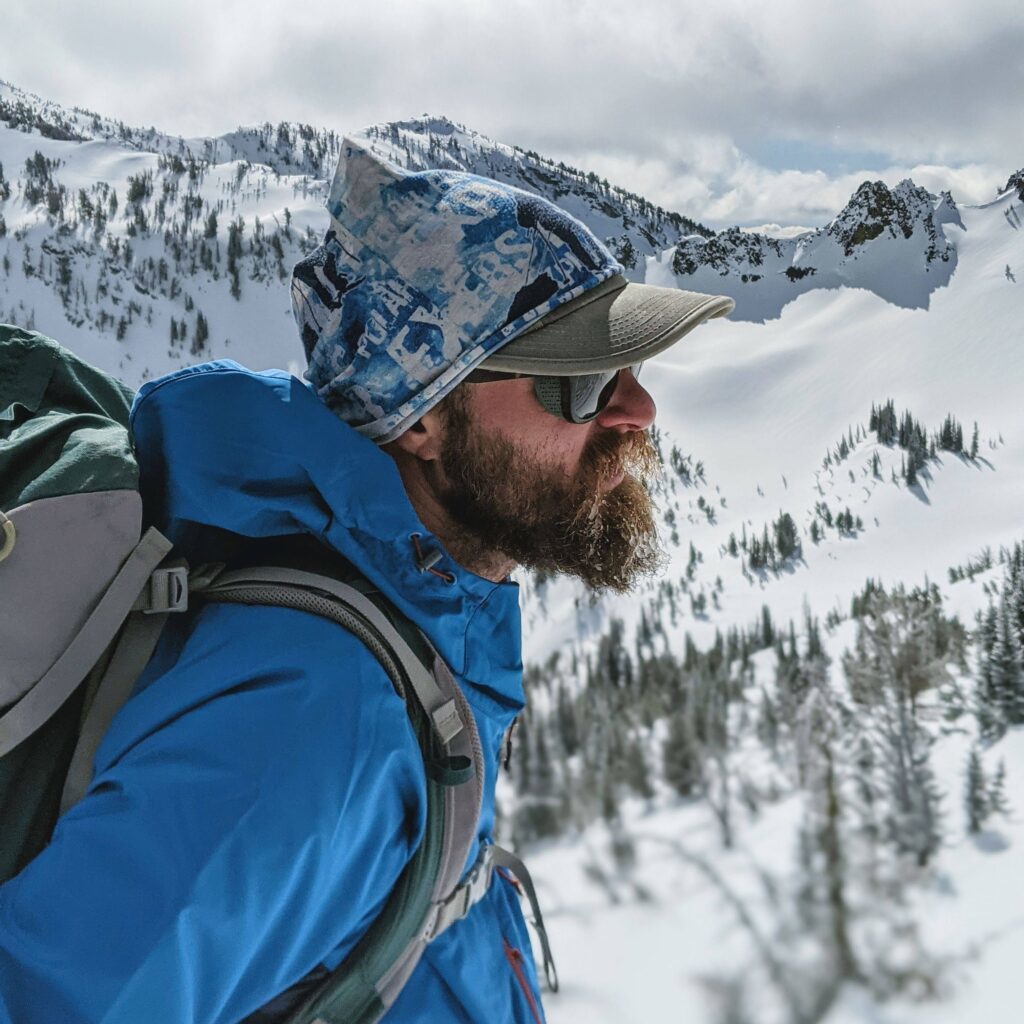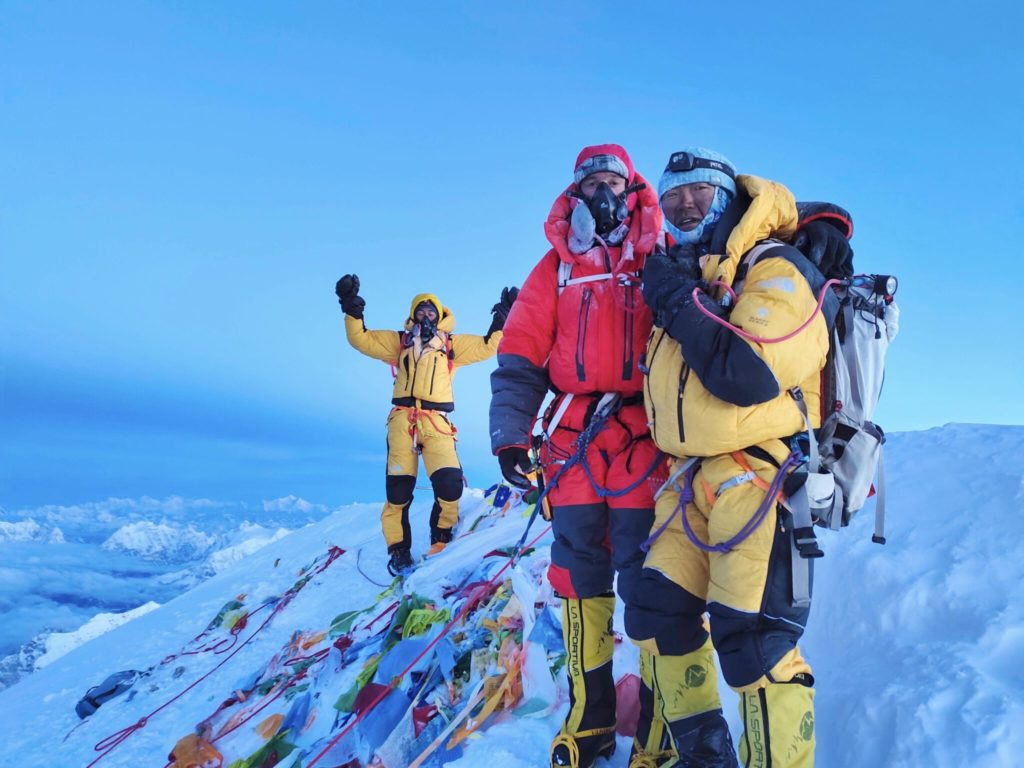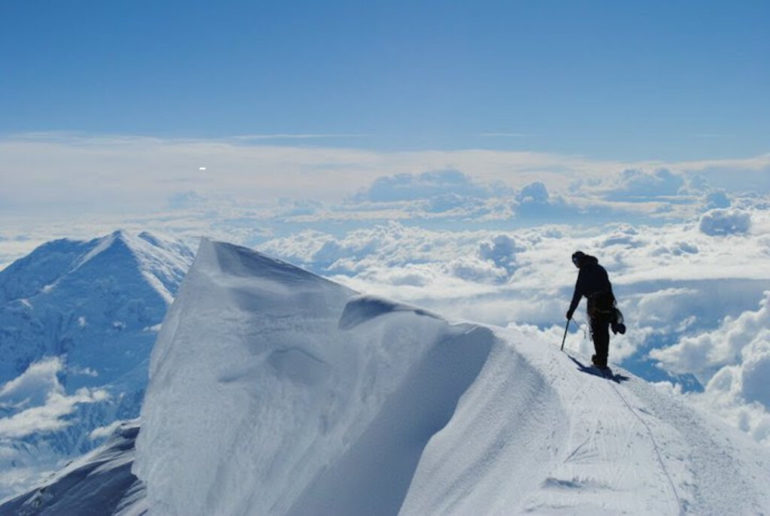Wilmette native Taylor Sweitzer has conquered the Explorer’s Grand Slam, a prodigious challenge to reach the North Pole, South Pole, and the highest summits on each of the seven continents.
Sweitzer, a 2012 New Trier graduate, completed the feat in May 2021 after summiting his last remaining peak: Mount Everest.
Fewer than 100 people have fulfilled the grand slam, an accomplishment that Sweitzer said he never intentionally pursued and was the result of natural progression.
In explaining his true motivation for climbing, Sweitzer said, “I believe that going on trips like this with friends and family is a really special way to connect with people.”

Indeed, mountaineering is a family affair for Taylor, whose father Rick Sweitzer owns the Wilmette-based Northwest Passage and Polar Explorers adventure tour companies.
Taylor and his siblings, Chris and Anna, had an early start to adventuring, and in 2010 at the age of 15, Taylor completed his first challenge for the grand slam by skiing the final degree to the North Pole. He was, at the time, the youngest person to do so.
With Chris, Taylor summited the South American grand-slam peak, Aconcagua, and the whole Sweitzer family climbed Mt. Kilimanjaro, the highest summit in Africa, together.
Last spring, Taylor and his father went to Mt. Everest for both to conclude their grand slams, as they had also completed most of its previous climbs together. In addition to the two Sweitzers, their team also had five Nepali sherpas who not only guided the men but also serviced the mountain’s National Geographic weather stations.
Upon arrival at base camp and after a few training climbs, Rick determined he was not fit to climb at the time. Because of the need to stay at base camp for extended periods to acclimatize to altitude, and COVID-19 precautions prohibiting socializing with other camps, Taylor found himself in a psychologically and physically isolating situation.
While initially he did not want to climb Everest without his father, with after more consideration, and talks with his parents, including his mother Helen who walked into base camp with them, Taylor and three Sherpa guides went forward with the climb.
“Having someone else there to share with and talk to, and trying to find ways to stay positive is crucial really, and very real,” he said. “I don’t think that I would have been successful on Everest this past spring without support from friends and family.”

Fortunately for Taylor, his acclimatization schedule lined up with a window of good weather, and he summited comparatively quickly. His team left base camp at 10 p.m. on May 11 not intending to reach the peak on that particular climb, but after making it up to Camp 3, and feeling well while facing a good forecast, they made what Taylor called a “game-time decision” to go for the summit, passing about 40 other climbers along the way.
The morning of May 12, Taylor took his final steps to the top just as the sun began to rise. He and his team were the only ones at the summit and took time to embrace the top of the world with the sun illuminating the clouds beneath them.
“It was sad in a way because I had gone with my father, and I was hoping to share [summiting] with my father and I did not. But it was amazing nonetheless,” Taylor said.
The sobering danger of climbing Mt. Everest was reinforced when the Sweitzers learned that two of the climbers Taylor had passed later died due to altitude exposure.
Though many climbers look at their accomplishments as a list of what they can do, Taylor doesn’t see it that way.
“Part of it for me has been a learning experience in failure, in not summiting mountains,” he said.
Aconcagua and Russia’s Mt. Elburus are two peaks that Taylor did not summit on the first attempt, requiring him to return on other trips. And though Rick has no current plans to go back to Everest to try again, he is open to the climb if he finds himself feeling well enough and in a situation that he could share it with others.
“It’s just important to have that humility to know when things aren’t perfect or it’s just not the right time, but also be able to keep your head up in a way to have the strength to go back and try something that was hard,” Taylor said, articulating a philosophy that is applicable both to climbing and to the travel industry that has been rocked hard by the pandemic.
It may seem counter-intuitive that Taylor and his father have mountain-centered lives that began in flat-terrained Wilmette, but both give some credit for where they are now to their Midwest roots,
“Growing up in Wilmette, with support from parents and the education I got, it all did encourage me that I could do what I wanted. I could accomplish whatever I set out to,” Rick said.
Besides, Taylor said, “When things are less accessible to you, you commit a little harder.”
This article originally appeared in The Record North Shore, a local news nonprofit.

